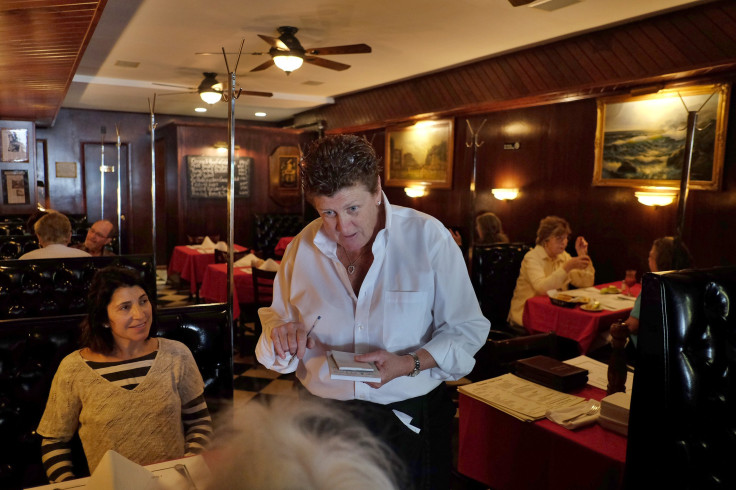How Much Should You Tip? At Danny Meyer's Restaurants, None, Starting In November

Has Danny Meyer just made the fine-dining experience a little smoother? Over the course of next year, starting this November, his 13 restaurants will eliminate tipping. The decision, announced Wednesday by Meyer, puts the CEO of Union Square Hospitality Group, who is also the founder of popular burger chain Shake Shack, once again at the vanguard of the restaurant industry amid a national debate over wages for workers in the food industry.
"Once these changes are implemented, the total cost you pay to dine with us won’t differ much from what you pay now," Meyer wrote in an open letter Wednesday. "But for our teams, the change will be significant. We will now have the ability to compensate all of our employees equitably, competitively and professionally."
The new policy is set to be rolled out at The Modern, a posh restaurant in Midtown Manhattan, in late November. Depending on how that exercise fares, it could be extended to Union Square Hospitality Group's remaining 12 restaurants by the end of 2016.
Friends, we've reached the (no) tipping point @USHGNYC. Hospitality is a total team sport. http://t.co/UMLVuCT3XT #HospitalityIncluded
— Danny Meyer (@dhmeyer) October 14, 2015Meyer for more than 20 years has advocated for a "European" system, where menu prices are all-inclusive, and has described the American system of tipping as both "awkward" and unwieldy. He wrote in 1994 in a newsletter for Union Square Cafe that in American venues, "restaurant patrons are expected to have the expertise to motivate and properly remunerate service professionals; servers are expected to please up to 1,000 different employers (for most of us, one boss is enough!); and restaurateurs surrender their use of compensation as an appropriate tool to reward merit and promote excellence," Eater reported. The system puts the U.S. "at a disadvantage when it comes to recognizing and promoting outstanding service," Meyer said.
Moreover, tipping creates imbalances in the "team sport" of hospitality, Meyer argued in Wednesday's letter. "Unfortunately, many of our colleagues -- our cooks, reservationists and dishwashers, to name a few -- aren’t able to share in our guests’ generosity, even though their contributions are just as vital to the outcome of your experience at one of our restaurants," he wrote.
According to Eater, most servers in New York earn $5 per hour, an amount known as the "tipped minimum." (It is slated to increase to $7.50 per hour in January, while fast-food workers are slated to see their minimum wage increase to $15 an hour by 2018.) The idea is that tips will bring income up to par with minimum wage, which in New York is $8.75. Without tips, a server with a $5 hourly wage would make $10,000 per year.
Will Restaurants Eliminate Tipping Now That Danny Meyer Has? http://t.co/fBC83tCLll #Enterpreneur pic.twitter.com/19mUlflpZN
— Freddy Yendrembam (@yfreddy_y) October 14, 2015Tips are often pooled and divided among servers and other wait staff, but that leaves out cooks, dishwashers and others who man the back end.
"I hate those Saturday nights where the whole dining room is high-fiving because they just set a record, and they’re counting their shekels, and the kitchen just says, ‘Well, boy, did we sweat tonight,’" Meyer told Eater.
Of course, if tips are eliminated but servers, busboys, cooks and other restaurant staff are to be paid, the money has to come from somewhere. Menu prices at Union Square Hospitality Group's fine-dining venues would have to rise even more, but by how much remains unclear.
As the rest of the restaurant industry watches closely, many other important questions have to be worked out too, including how salaries would change or what impact this new rule could have on profits.
© Copyright IBTimes 2024. All rights reserved.












